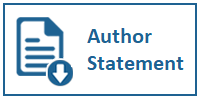Efficient Order Management: Design and Implementation of a System using Scheduling Algorithms and Expert Validation
DOI:
https://doi.org/10.31937/ti.v15i2.3489Abstract
This research focuses on the crucial role of system interfaces in enhancing user experience, particularly in the context of an online canteen ordering system. A well-designed interface not only improves user satisfaction but also streamlines the ordering process, addressing issues like queuing in canteens. The study employs Expert Validation to gather valuable insights from experts, ensuring a robust foundation for system development and evaluation. The online canteen ordering system facilitates food orders through an application, eliminating the need for users to physically visit the canteen. This approach not only benefits users but also aids canteen management in efficient order handling.The scheduling algorithms, FCFS (First Come First Served) and SJF (Shortest Job First), are utilized to manage incoming orders. FCFS, chosen for its intuitive handling of queuing problems, complements the SJF algorithm, which excels in efficiently managing numerous orders. The system dynamically switches between these algorithms based on the order load, resulting in an effective queuing structure. Usability testing is conducted to evaluate the system's user-friendliness, with an impressive average score of 86.6%. This indicates that the system is wellreceived and navigable by users. The website implementation receives an ”good” categorization through UEQ (User Experience Questionnaire) testing, with attractive design and high scores in aspects like Perspicuity, Efficiency, Dependability, Stimulation, and Novelty. These findings collectively affirm the success of the designed interface in delivering a positive user experience for the online canteen ordering system.
Downloads
Downloads
Published
How to Cite
Issue
Section
License
Authors retain copyright and grant the journal right of first publication with the work simultaneously licensed under a Creative Commons Attribution-ShareAlike International License (CC-BY-SA 4.0) that allows others to share the work with an acknowledgement of the work's authorship and initial publication in this journal.
Authors are able to enter into separate, additional contractual arrangements for the non-exclusive distribution of the journal's published version of the work (e.g., post it to an institutional repository or publish it in a book), with an acknowledgement of its initial publication in this journal.
Copyright without Restrictions
The journal allows the author(s) to hold the copyright without restrictions and will retain publishing rights without restrictions.
The submitted papers are assumed to contain no proprietary material unprotected by patent or patent application; responsibility for technical content and for protection of proprietary material rests solely with the author(s) and their organizations and is not the responsibility of the ULTIMATICS or its Editorial Staff. The main (first/corresponding) author is responsible for ensuring that the article has been seen and approved by all the other authors. It is the responsibility of the author to obtain all necessary copyright release permissions for the use of any copyrighted materials in the manuscript prior to the submission.















